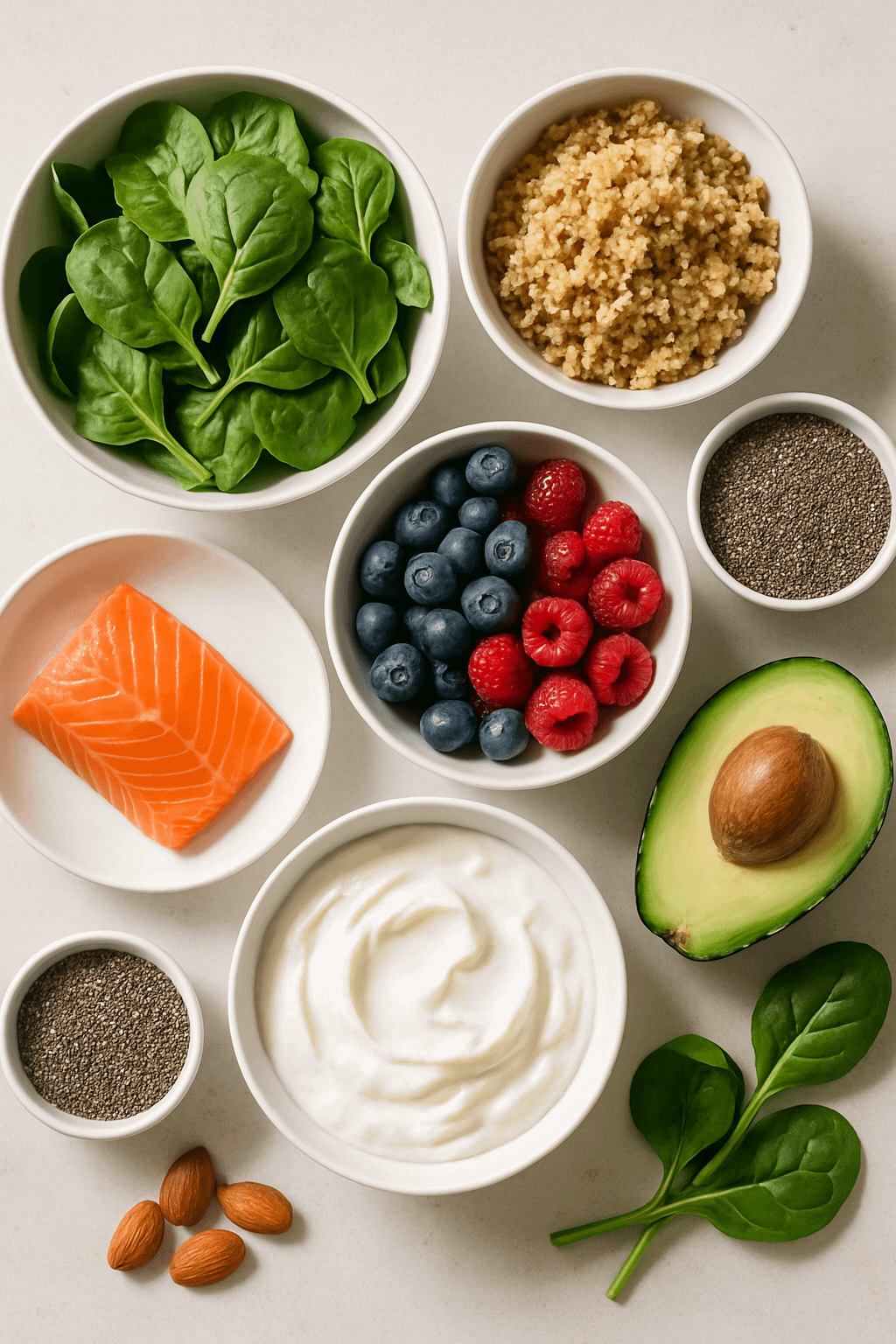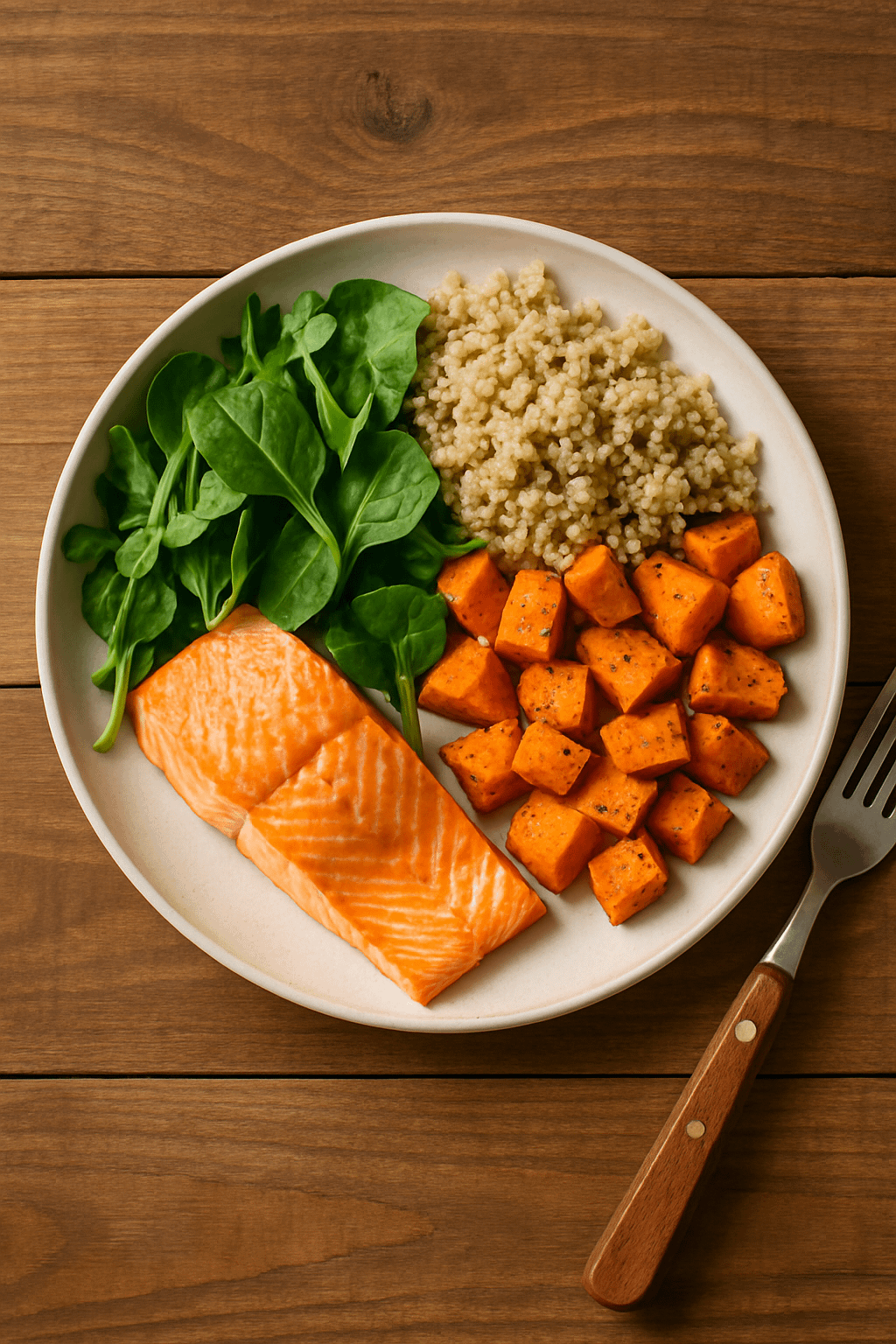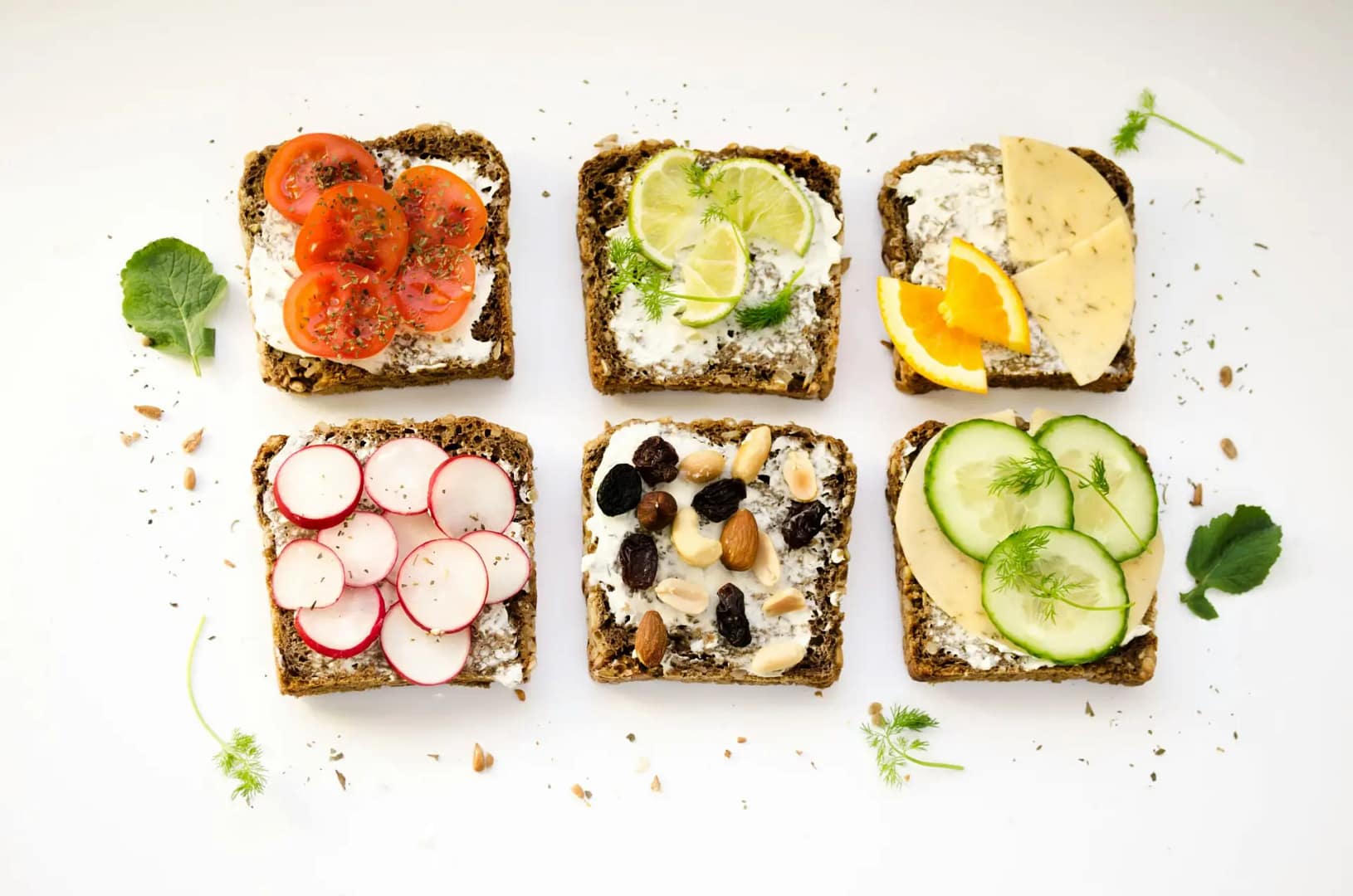What to Eat for Steady Energy All Day: Science-Backed Foods to Beat Fatigue Without Caffeine
Feeling drained before noon? This guide reveals the exact foods and habits you need to maintain natural energy all day long — without relying on caffeine or sugar spikes.
⚡ Quick Tip: Start with ONE change today (e.g., chia seeds at breakfast). Small steps win.

🧠 Why Nutrition = Energy
Fatigue isn’t always about lack of sleep. Often, it’s what (or when) you eat. Food provides cellular fuel, and consistent energy comes from steady blood sugar, nutrient density, and hydration.
🍽️ Top Nutrients That Fight Fatigue
- Complex Carbohydrates: Oats, quinoa, sweet potatoes (slow-release energy)
- Magnesium: Almonds, spinach, pumpkin seeds (supports 300+ enzymatic reactions)
- B Vitamins: Eggs, lentils, nutritional yeast (critical for ATP production)
- Iron: Leafy greens, red meat, legumes (prevents oxygen-related fatigue)
- Healthy Fats: Avocado, olive oil, chia seeds (long-lasting fuel)

🥦 Best Foods to Beat Energy Crashes
- Bananas: Natural carbs + potassium (prevents muscle fatigue)
- Greek Yogurt: Protein + probiotics (gut-brain axis support)
- Oats: Beta-glucan fiber for slow digestion
- Hummus: Protein + fiber + healthy fat (perfect snack combo)
- Hard-Boiled Eggs: B12 + satiety (no mid-morning crashes)
- Chia Pudding: Omega-3 + hydration (absorbs 10x its weight in water)
➡️ Related: High-Protein Breakfasts That Don’t Rely on Eggs
➡️ Related: 7 Superfoods to Boost Your Health
💧 Don’t Forget Hydration
Even slight dehydration (just 2%) can cause fatigue, brain fog, and sugar cravings. Aim for 2.5–3L of water daily — more if active.
Try: Water with lemon + pinch of sea salt (natural electrolytes to enhance absorption).

⏱️ Meal Timing for Maximum Energy
- Breakfast: Within 1 hour of waking (kickstarts metabolism)
- Snacks: Every 3–4 hours (protein + fiber-based to avoid spikes)
- Dinner: 2–3 hours before sleep (supports overnight recovery)
🧃 Sample All-Day Energy Meal Plan
Breakfast: Overnight oats with chia, almond milk, berries, and a scoop of plant-based protein.
Lunch: Quinoa salad with grilled chicken, arugula, roasted sweet potato, and olive oil dressing.
Snack: Greek yogurt with almonds and a drizzle of honey.
Dinner: Baked salmon, steamed broccoli, and wild rice with turmeric.
🔁 Habits That Support Nutrition for Energy
- Limit processed carbs and sugars (they cause rebound fatigue)
- Pair carbs with protein at every meal (balances blood sugar)
- Use magnesium-rich foods at night (promotes restorative sleep)
- Sleep 7–9 hours (critical for nutrient absorption and repair)
❓ FAQs
Can supplements help with energy? Yes — especially magnesium glycinate, B-complex, and vitamin D. But they support — not replace — whole foods.
Is caffeine bad? In moderation (≤400mg/day), caffeine is fine. But it shouldn’t mask poor nutrition or sleep deficits.
🛒 Recommended Products
Tools I personally use (Disclosure: Affiliate links support our research):
- ✔️ Organic Chia Seeds (Amazon) – Rich in omega-3 and fiber
- ✔️ Glass Overnight Oats Jars (Amazon) – Meal prep made easy
- ✔️ Magnesium Glycinate (Amazon) – For better sleep and recovery
- ✔️ Portable Nut Packs (Amazon) – Perfect for on-the-go energy
📬 Want more evidence-based nutrition tips? Subscribe to the FitWisePRO Newsletter →
📸 Follow us on Instagram for daily energy-boosting recipes!


